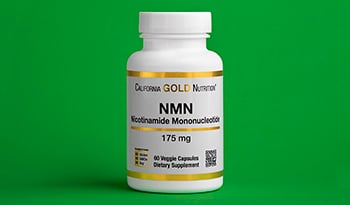5 Simple Oral Health Tips

Why Oral Health Matters More Than We Think
Prioritizing oral health does much more than keep our smiles bright. It's an investment in our overall well-being. Think of the mouth as the gateway into the body. What happens there can influence how the rest of our body functions and feels. Research continues to highlight the strong connection between oral health and whole-body health.
Complete oral health goes beyond brushing and flossing. Factors like dry mouth, often caused by certain medications, can also affect oral comfort. That’s one of many reasons why working with a dentist is so important. Dental professionals can help address individual needs.
With a few simple daily habits and the help of time-honored botanicals, we can create routines that help us feel our best!
Common Oral Health Issues To Watch For
Being proactive about oral care is key to maintaining overall wellness and preventing more complicated issues down the road. Some of the most common concerns people experience include:
- Tooth sensitivity
- Dry mouth
- Irritated gums
To support a clean mouth and fresh breath, it’s vital to brush and floss twice daily for at least 2 minutes. A dental hygienist can be an excellent resource for guidance on best practices and techniques for the best results. To support long-term oral health, avoid smoking or chewing tobacco, limit sugary foods and drinks, and drink plenty of water throughout the day.
Certain groups may need to be extra mindful of their oral routines. For example, older adults and pregnant individuals may experience oral changes due to shifting hormones or health conditions. People managing chronic health concerns should always speak with their dental provider to ensure they are getting personalized care.
Tools like a tongue scraper or botanical-based mouthwash can help us stay fresh and consistent with our hygiene. With a few easy daily habits, we can build a strong oral care routine that fits smoothly into our daily lives:
1. Try Tongue Scraping Each Morning
Tongue scraping is a traditional self-care practice used to remove buildup from the tongue’s surface. The most important thing to know about tongue scraping is to be gentle, since pressing too hard may lead to redness and irritation. Using a tongue scraper first thing in the morning can help to promote fresh breath and support oral cleanliness. Incorporating this habit into a daily oral care routine is easy and takes only a few seconds.
2. Avoid Alcohol-Based Mouthwashes
Many conventional mouthwashes contain a high alcohol percentage, which may cause dryness in the oral cavity. Opting for alcohol-free or low-alcohol mouth rinses made with gentler botanical ingredients can be a good option for those seeking to support a healthy microbial balance in the mouth.
3. Support Gums With Time-Tested Herbs
Nature offers a wide range of botanicals traditionally used in oral care routines. These herbs have been historically valued in natural practices:
- Myrrh Gum: This fragrant resin has long been used in oral hygiene traditions. It helps tone and soothe oral tissues.
- Peppermint Leaf: Known for its refreshing aroma and cooling sensation, peppermint supports fresh breath and invigorates the senses.
- Usnea Lichen: This lichen has a long history of use in traditional herbalism. It's valued for its cleansing properties and ability to support oral freshness.
- Bee Propolis: This resinous substance collected by bees is traditionally used to help maintain a healthy environment in the mouth. Its soothing and protective qualities have made it a staple in natural oral care products.
- Bayberry Rootbark: Often used by herbalists to support oral tissue tone, bayberry has astringent properties that have been appreciated in traditional mouth rinses and gargles.
- Wild Geranium Root: This herb has been used in herbal traditions to support strong, clean gums. Its gentle astringent action makes it a useful ally in natural oral hygiene routines.
When choosing oral care products, consider those that feature these herbs in low-alcohol and plant-based formulations. Always consult a healthcare provider before beginning any new supplement regimen.
4. Stay Well Hydrated + Eat A Whole Foods Diet
Hydration plays a key role in saliva production, which helps cleanse the mouth and maintain a healthy balance. Drinking water throughout the day is important, as it helps wash away food particles and support oral comfort.
Eating a diet rich in whole, minimally processed foods, including fiber-rich fruits and vegetables, can support oral health as well. Crunchy produce like apples and carrots naturally cleans the teeth between brushings.
5. Don’t Skip Your Oral Care Routine!
Some nights we're just too tired to do more than crawl into bed. But taking a couple of minutes for our oral care routine makes a difference. It helps remove bacteria in the form of plaque, supports a fresh mouth, and keeps our gums strong
Brushing at least twice daily and flossing are simple but essential steps. Dentists frequently recommend electric toothbrushes for their overall effectiveness and suggest replacing electric toothbrush heads every 3 months, if not sooner.
Regular dental checkups and cleanings help us stay on track and can identify any problem areas that need attention.
The Bottom Line
Tending to our oral health is an essential component of whole-body health. A few mindful habits, including optimal nutrition, drinking plenty of water, and using herbs with a long history of oral support, can help keep our mouths feeling balanced and clean.
References:
- Scannapieco, F. A., & Papandonatos, G. D. (2020). Association between oral conditions and systemic disease: A review of current evidence. Journal of Clinical Periodontology, 47(2), 189–201.
- Marsh, P. D. (2018). Role of the oral m in icroflora in health. Microbial Ecology in Health and Disease, 29(1), 7285.
- Alvear, M., & Paredes, A. (2015). The impact of tongue cleaning on bad breath: A randomized trial. International Journal of Dental Hygiene, 13(3), 197–202.
- Pippi, R. (2017). Alcohol-containing mouthwashes: A systematic review of effects on the oral mucosa. Medicina Oral, Patología Oral y Cirugía Bucal, 22(5), e502–e510.
- U.S. National Library of Medicine. “Herbal Medicine.” MedlinePlus. https://medlineplus.gov/herbalmedicine.html
DISCLAIMER:This Wellness Hub does not intend to provide diagnosis...

















































































 Table of Contents
Table of Contents














